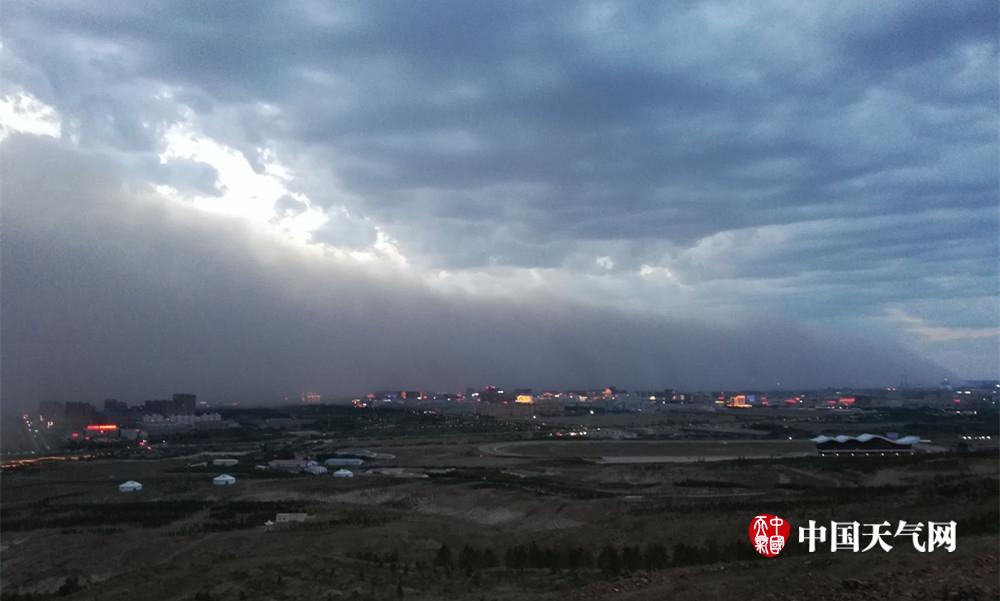The Actress Giving Permission to Director During Auditionclock is ticking to save Central Africa's forest elephants.
Populations of the elusive elephants have plunged by around 80 percent inside one of the region's most important nature preserves.
Within Gabon's Minkébé National Park, poachers likely killed about 25,000 forest elephants for their ivory tusks between 2004 and 2014, according to a Duke University-led study in the journal Current Biology.
SEE ALSO: The world's fastest land animal is even more threatened than we thoughtThat's a significant number of animals, considering that Gabon holds about half of the estimated 100,000 forest elephants across all of Central Africa.
 Original image has been replaced. Credit: Mashable
Original image has been replaced. Credit: Mashable "The loss of 25,000 elephants from this key sanctuary is a considerable setback for the preservation of the species," John Poulsen, an assistant professor of tropical ecology at Duke'd Nicholas School of the Environment, said Monday in a statement.
The dramatic population decline from one of Central Africa's largest, most remote protected areas "is a startling warning that no place is safe from poaching," he added.
Across the African continent, populations of all elephants have plummeted from about 1.3 million in the 1970s to less than 500,000 today due to poaching and habitat loss.
This week's dismal numbers from Gabon arrive in spite of a concerted effort by governments and conversationists to halt the illegal killing of elephants for their ivory, meat and other parts.
 Soldiers watch as ivory elephant tusks are burned on a pyre in Libreville, Gabon. Credit: Joel Bouopda Tatou/AP/REX/Shutterstock
Soldiers watch as ivory elephant tusks are burned on a pyre in Libreville, Gabon. Credit: Joel Bouopda Tatou/AP/REX/Shutterstock In December, two major global conversation unions adopted resolutions to ban all domestic ivory sales, on top of existing bans on international ivory trading. China, the world's largest ivory market, said it plans to shut down its ivory trade by the end of 2017.
Gabon itself has also taken important steps to curb poaching, Poulsen said.
The government created a National Park Police force, elevated the conservation status of forest elephants to "fully protected," and doubled the national park agency's budget. In 2012, Gabon was the first African country to burn all its confiscated ivory -- a gesture meant to snuff out the spike in poaching.
Yet Gabon's elephants are still vanishing, as the new research shows.
For their study, researchers estimated a population loss of between 78 and 81 percent by comparing data from two large-scale surveys of elephant dung in the Minkébé park, which were done in 2004 and 2014.
The team also used different analytical approaches to account for periods of heavy rainfall, which might've sped up the dung's decay and skewed the accuracy of the surveys.
Poulsen and his colleagues said that most poachers likely came from outside of Gabon, including the neighboring country of Cameroon.
The edge of Minkébé National Park lies just 3.8 miles from a major Cameroon road, which makes it easy for Camaroonese poachers to cross into Gabon, do their dirty work and bring their illegal haul back into Cameroon.
Poulsen and his colleagues urged governments in Central Africa to team up to stop illegal cross-border traffic, including by establishing new multinational protected areas and coordinating international law enforcement.
(Editor: {typename type="name"/})
 Philips now allows customers to 3D print replacement parts
Philips now allows customers to 3D print replacement parts
 12 celebrities who love dogs just as much as you do
12 celebrities who love dogs just as much as you do
 Every crush from Netflix's 'Bridgerton' Season 2, ranked
Every crush from Netflix's 'Bridgerton' Season 2, ranked
 Rudy Giuliani's unfinished tweet brings out the best in Jokes Twitter
Rudy Giuliani's unfinished tweet brings out the best in Jokes Twitter
 Best iPad deal: Save $132 on Apple iPad (10th Gen)
Best iPad deal: Save $132 on Apple iPad (10th Gen)
NYT Connections Sports Edition hints and answers for May 18: Tips to solve Connections #237
 Connections: Sports Editionis a new version of the popular New York Times word game that seeks to te
...[Details]
Connections: Sports Editionis a new version of the popular New York Times word game that seeks to te
...[Details]
A student activist prevented an Afghan man from being deported
 Elin Errson, the Swedish student activist who tried to prevent an asylum-seeking Afghan man from bei
...[Details]
Elin Errson, the Swedish student activist who tried to prevent an asylum-seeking Afghan man from bei
...[Details]
Picsart is using artificial intelligence to create all
 It seems like artificial intelligence can be used to do just about anything. Picsart, a social desig
...[Details]
It seems like artificial intelligence can be used to do just about anything. Picsart, a social desig
...[Details]
Behind 'Bridgerton' Season 2's inspired Bollywood cover
 The Bridgerton Season 2soundtrack took our breath away.Episode 6, "The Choice," opens with a first f
...[Details]
The Bridgerton Season 2soundtrack took our breath away.Episode 6, "The Choice," opens with a first f
...[Details]
Virtual Reality: The True Cost of Admission (and Why It Doesn't Matter)
'The Office' stars discuss the finger guns meme from the 'Murder' episode
 I do declarethe "Murder" episode of The Officegave fans one of the show's greatest memes.On the late
...[Details]
I do declarethe "Murder" episode of The Officegave fans one of the show's greatest memes.On the late
...[Details]
Zoom has added Twitch integration so you can livestream straight from the app
 Zoom has added Twitch integration to its app, allowing users to livestream meetings straight to the
...[Details]
Zoom has added Twitch integration to its app, allowing users to livestream meetings straight to the
...[Details]
How to change your Instagram algorithm to a chronological feed
 Six years after switching from a chronological feed to an algorithm, Instagram unveiled the option f
...[Details]
Six years after switching from a chronological feed to an algorithm, Instagram unveiled the option f
...[Details]
The Anatomy of Liberal Melancholy
 J.M. Bernays ,April 25, 2017 The Anatomy o
...[Details]
J.M. Bernays ,April 25, 2017 The Anatomy o
...[Details]
FCC flags Kaspersky, Russian cybersecurity firm, as national security risk
 The U.S. Federal Communications Commission has deemed all products and services from the Russia-base
...[Details]
The U.S. Federal Communications Commission has deemed all products and services from the Russia-base
...[Details]
Astronomers saw one galaxy impale another. The damage was an eye

Picsart is using artificial intelligence to create all

接受PR>=1、BR>=1,流量相当,内容相关类链接。